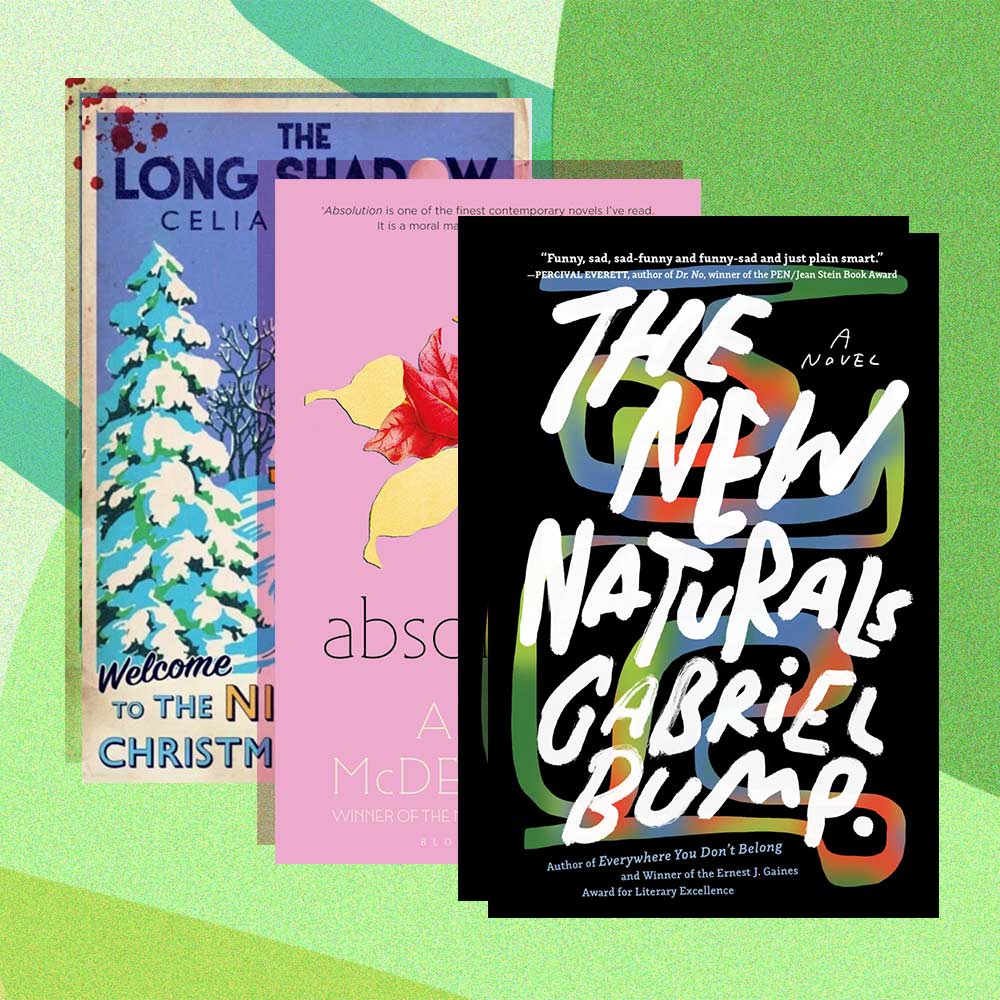Yomi Adegoke: "We need to lean into uncomfortable conversations so they aren't commandeered by the wrong people"
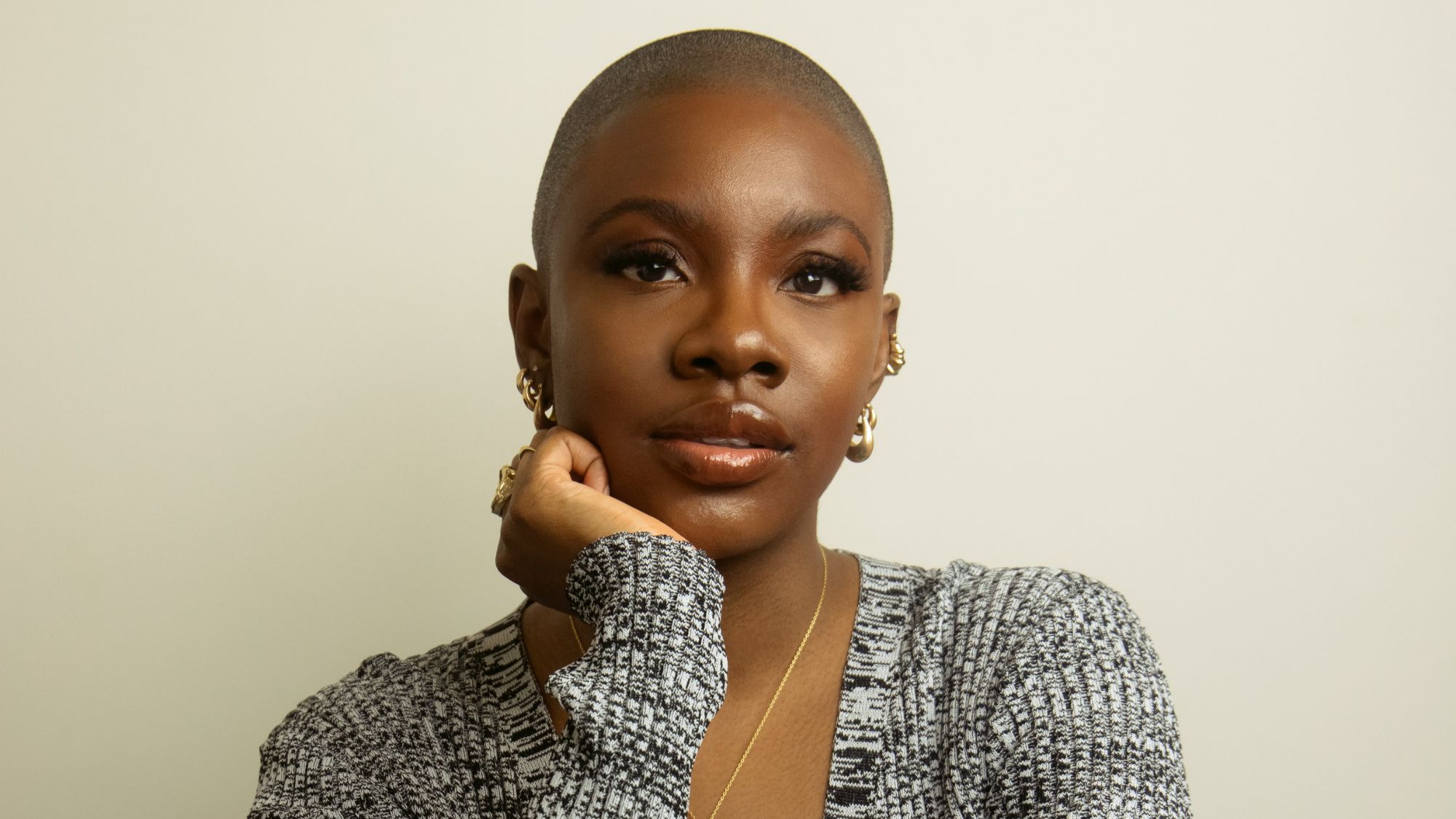

You would have to be living under a rock not to know the name Yomi Adegoke - past Marie Claire Future Shaper and one half of the powerhouse duo behind the Black girl bible, Slay in Your Lane.
This year however, Yomi is at it alone, releasing her debut novel The List this week.
Tipped as one of the hottest books of the year, The List follows influencer couple Ola and Michael in the run up to their wedding, and how their relationship is affected when Michael's name is included on an online list of abusers.
The List is topical, thought-provoking and vital, diving into the grey areas of difficult conversations that both writers and readers tend to avoid. And in the process, opening much needed debates about cancel culture, anonymity and the terrifying power of the internet. Even those who are black and white in their beliefs will come away with new perspectives, but despite its uncomfortable subject matter, The List still manages to be a deeply enjoyable read - something that is no easy feat.
Features Editor Jenny Proudfoot caught up with Yomi Adegoke to find out more. Together they discussed her transition to fiction, the expectations on Black writers today and why we all need to start having uncomfortable conversations.
A post shared by Yomi Adegoke (@yomi.adegoke)
A photo posted by on
What initially drew you to the concept of The List?
It was around 2017 when multiple different lists were going viral at the height of #MeToo. I guess every single community had their own list of abusers, and it just all seemed to be happening concurrently. There was one list that set it all in motion in the States called the Shitty Media Men list which went really viral, and it prompted lots of copycats. So when it was all unfolding, I felt conflicted. On one hand, I thought it was great and incredibly important. It was giving women a voice - women who've been let down by so many systems, from HR to the court of law. It was giving them a chance to hold these men accountable who so often get away scot-free. But then I guess being a journalist, I felt conflicted. I worked at Channel 4 News for two and a half years and I was held to Ofcom regulation standards. Plus, I have a law degree, so I guess from that perspective, it was a conflict. I had this uneasiness I think with the anonymity. It is so crucial to protect the identity of victims. But simultaneously, I grew up watching Catfish, so I also know that anonymity is definitely something that can be weaponised online. And it's why I say a lot that yes this book is about cancel culture and #MeToo in many ways, but it is first and foremost a book about the internet. I just think that there are lots of movements that have started with the best of intentions, but it doesn't mean that they can't be co-opted and weaponised, and that was something that I wanted to look at. I wanted to write it as non-fiction to start with, but it was quite fraught being very much in the throes of #MeToo. Then lockdown came around and I had nothing to do. I can’t bake and I had literally run out of canvas to paint with. So I thought why not reimagine this idea as something else entirely, and the rest is history.
Marie Claire Newsletter
Celebrity news, beauty, fashion advice, and fascinating features, delivered straight to your inbox!
More than any book I've ever read, The List left me with so many questions to ponder about my own ethics and internal biases. Was your intention to open conversations, rather than to provide readers with your own conclusions?
That is music to my ears - that was 100% my intention. I always said I was never going to be able to provide answers because I had all the questions, but no conclusions or solutions. It's still something that I'm working through and trying to understand, and I’ve been very transparent about that. I think that because I've written this book, sometimes it can appear as though I have it all figured out - that I must be so good online, and I'm really not. It's part of why I've tried to take a step back from the internet. It’s still something that I'm working on because my human nature is often to do and then think later. So, that's why I've tried to approach my behaviour online differently - to not be guilty of what I'm essentially critiquing in the book. I didn't want to preach to the converted, but I really did want to make people think and to self-interrogate. Very few people actually know what they would do if they were placed in that position - and that's what I wanted to examine. I wanted it to resonate with people who are potentially more black and white in their thinking and have set views. I wanted to speak to them and pose questions that might make them think differently.
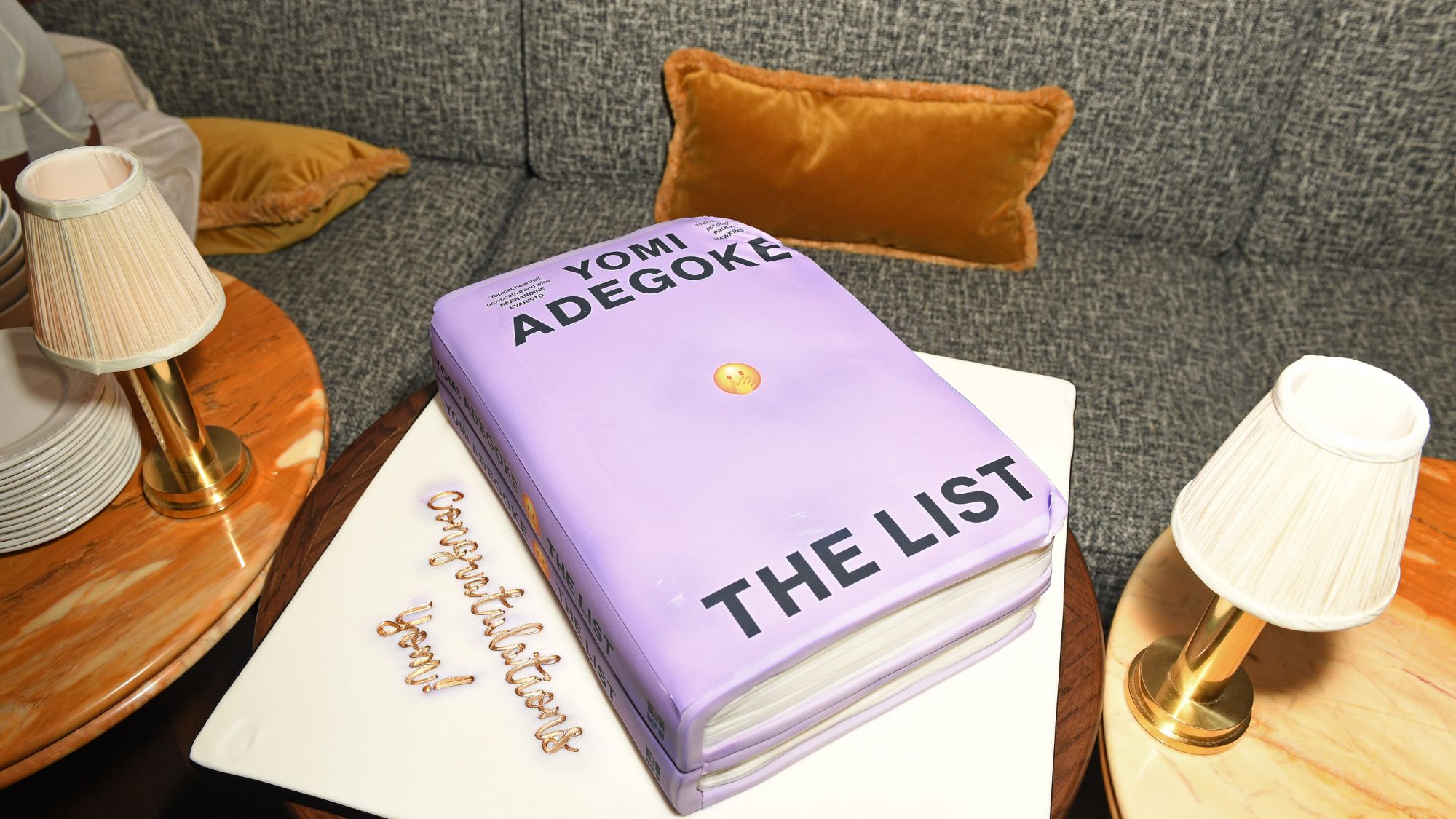
The List tackles so many grey areas that other writers are afraid to touch, and there were so many details that stopped it from being easy to draw a conclusion. How was that as a writing process?
Oh, my God, it was so hard. With Slay in Your Lane, it was non-fiction, I was writing it with my best friend Elizabeth and I was writing about being a black woman - it was second nature to me. But with this, it was so complicated, like walking a constant tightrope. Once it looked like it was going to go in one direction, I'd have to pull it back and look at it from another angle. I had to constantly play devil's advocate because I wanted to be able to pose questions without it being weaponised. I'm always saying my biggest nightmare would be an incel picking this up and going, “See, in this book the story's more complicated, therefore we can use this to say #notallmen”. That is certainly not what I’m saying.
So, what is it that you do want to say with The List?
What I'm saying is that these conversations in terms of ethics and "innocent before proven guilty" are in my opinion fundamentally progressive ideals. And I feel like because these are very difficult conversations, we often leave them to people who are more black and white in their thinking. We leave the conversation to people who don't necessarily have the best intentions. So conversations about false allegations and anonymity become really right wing, anti feminist - and about wanting to stop women from being able to speak their truth. But for me, that's what makes it more important for people who are feminist, who are progressive and who want to build a better society, to make sure we're not afraid of having these conversations. Because if we leave it to the wrong people, they get monopoly on these conversations. They get to say how to move forward and they get to control it. So I think, no - it is uncomfortable, but we need to go with that discomfort so that the conversation is not commandeered by the wrong people. So yes, it was an absolutely huge job.
A post shared by Yomi Adegoke (@yomi.adegoke)
A photo posted by on
Was it difficult for you to separate yourself from Ola for readers?
I can honestly say no. I definitely had these points that I was very much able to draw from my personal experience - we're from similar areas, we both worked at feminist publications etc. But I think where we differ - and it was very important that we differed - is that I'm quite a fence sitter and I would like to say that I am a critical thinker. My default setting is scepticism - I'm very much a "hold your horses" person - I like to wait and see, and get to the bottom of something. So I purposely made myself very different to Ola because had I made her like me, it would have been more boring of a story. I would have absolutely been as consistent and as confused. And I am a feminist - but feminism isn't my brand, and it's not my identity in the same way.
I think being honest, I'm also probably more comfortable with hypocrisy. I mean, yes, I'm a feminist, but I also have absolutely no desire to ever pay on a date in my life. And I'm not going to fold that into feminist praxis. I think that's what we do a lot with feminism - we're like, oh, if a woman does something entirely against the progression of women, because she's supposed to do that, it's feminist. And I don't actually agree with that at all. I think sometimes it's not feminist. But guess what, you're a human being growing up and living in a patriarchy, so you can make decisions that aren't feminist sometimes. And we've got to own it, as opposed to trying to build it into a feminist praxis. So, I think Ola is nowhere near as sceptical as me, and I think she's a lot more concerned with being perceived as hypocritical. Whereas, my social media presence is just a hotbed of inconsistency. I am very openly like, you shouldn't do this, but I'm simultaneously going to do this - I'm going to know it's wrong, but at the end the day I'm a person.
Are there any writers who have particularly inspired you over the years?
In terms of inspiration, definitely Kiley Reid. God I feel like she's going to see all these different interviews and be like, this woman is obsessed with me, but her novel, Such A Fun Age, was integral to The List. I interviewed her when she was longlisted for the Booker - and I was asking her questions from the audience but really they were from me. I had started writing The List at this point and was struggling - I felt like I had to write it in a particular way in order to be taken seriously - especially as a female author. I asked Kiley how she managed to write a fun book that still deals with serious themes, and she told me: "Not everyone's going to write the kind of book that has an isolated old man on the mountain with a pocket watch". She told me that it's just not everyone's bag, and that it certainly wasn't hers. And she was just very open and happy to be someone who has written something that was accessible and fun, but also respected as work. So when she said that it really was just such a lightbulb moment and I remember feeling that I had almost been given permission from an excellent writer to write how I want.
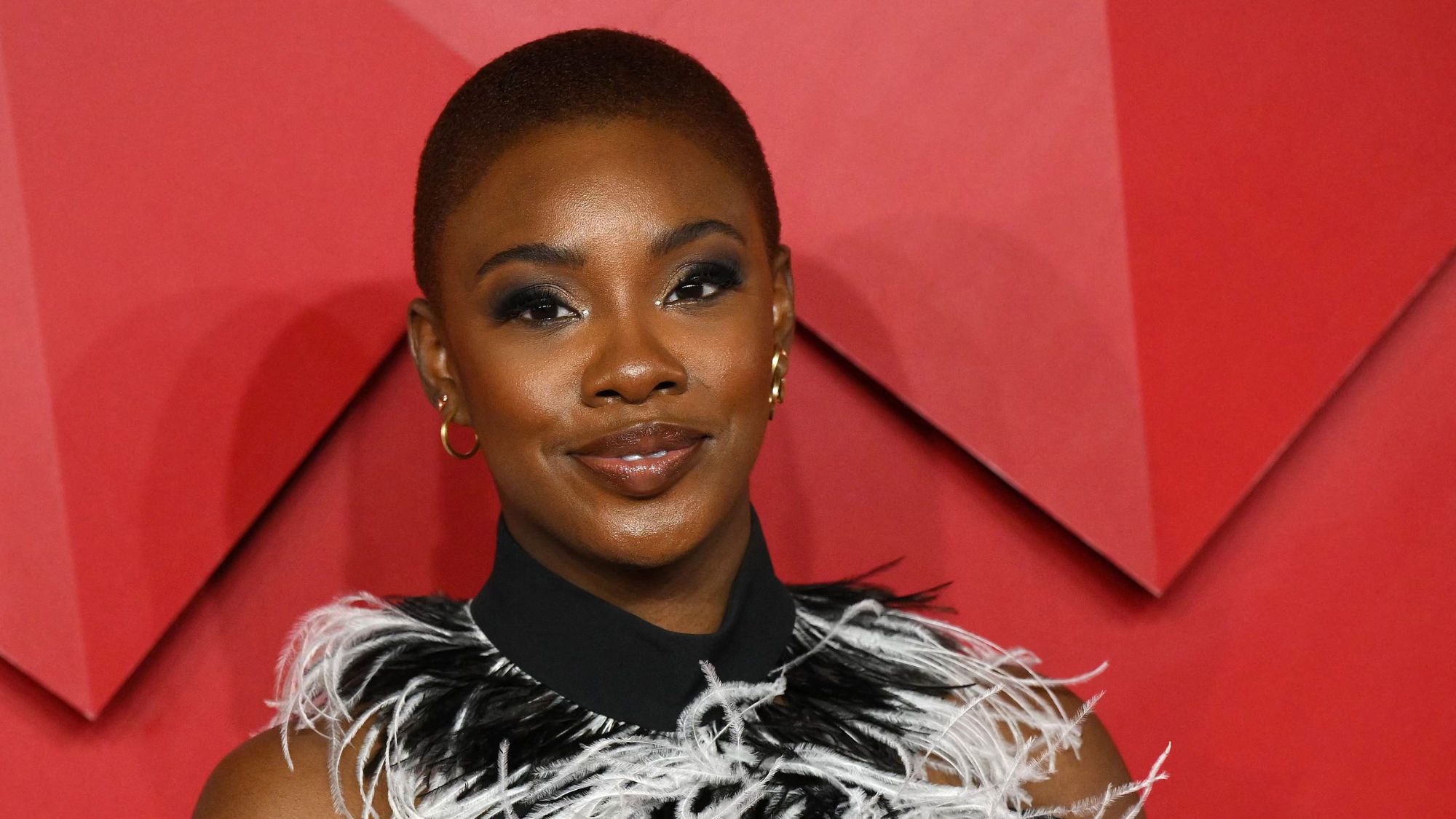
I recently interviewed Kiley Reid, and she told me that particularly at the moment, there is this expectation for Black authors to write about race, and that she feared Black art was being turned into solely a pedagogical tool. Is that something that you have experienced?
I think I'm so lucky in this respect. When I first started as a journalist, there was much less of an appetite for writing around race. I would pitch stories but I wouldn't get commissions, so I learnt from very early in my career to write about everything. Then, as I got older and amid Black Lives Matter, there was more interest in that kind of theme. I was finally getting paid to write all these pieces that I had wanted to - and that was exciting, but I never allowed myself to be pigeonholed and would always write around subjects. Because at the end of the day I'm a Black woman, and I'm going to have a Black female lens on everything. But then I co-wrote Slay in Your Lane and that was such a seismic book for Black women in particular. So that was when people really wanted me to talk about race, which again I wasn't against. But I think, to me, it was just important that I've always maintained that I write about everything.
Did that also apply to The List?
What I'm really proud of with The List is that it's a story that can happen to any other ethnic group. It's not a story that only happens to Michael because he's a Black man, but it does affect Michael in a very specific way because he's Black. Historically, Black men are often seen as guilty before innocent, and you've got cases like Emmett Till, the Scottsboro boys and the Cardiff Five. But then you also see how that reality and history can be weaponised by men's rights activists. So this isn't a Black story so to speak, but it is a story with absolutely unapologetically Black characters, and almost an entirely Black cast. I think Kiley is 100% right that a lot of people are commissioned or pushed into feeling like they have to write books that have a sort of racial teachable moment. And I also think that when you're writing stories about race and racism, it can be very easy to know who the good guys and the bad guys are. You know, if we're looking at racism, then the villains are usually going to be white supremacists and the innocent characters are the Black characters. But what I wanted to do with The List is reflect my reality - I live in Croydon and I grew up in a very Black area. So the good guys in my life were Black people, and the bad guys in my life were Black people as well, because everyone was Black. I think in books and the media, we see white people in a really 360 way. And I think often with Black art, there is an expectation that it's our job to undo years of unfair characterisation and demonisation of Black people by having Black casts that are flawless. But I’m a big Jesse Armstrong fan. He obviously wrote Peep Show and Succession - and all the characters are heinous, and I love that. So, I wanted to write a cast with loads of amazing Black people in it, but also with bad Black people in it. Because like any other group in the world, there are villains and good guys. And I didn't want to present Black people that were perfect because we're not. Because we're people and I think sometimes doing that can be dehumanising in itself.
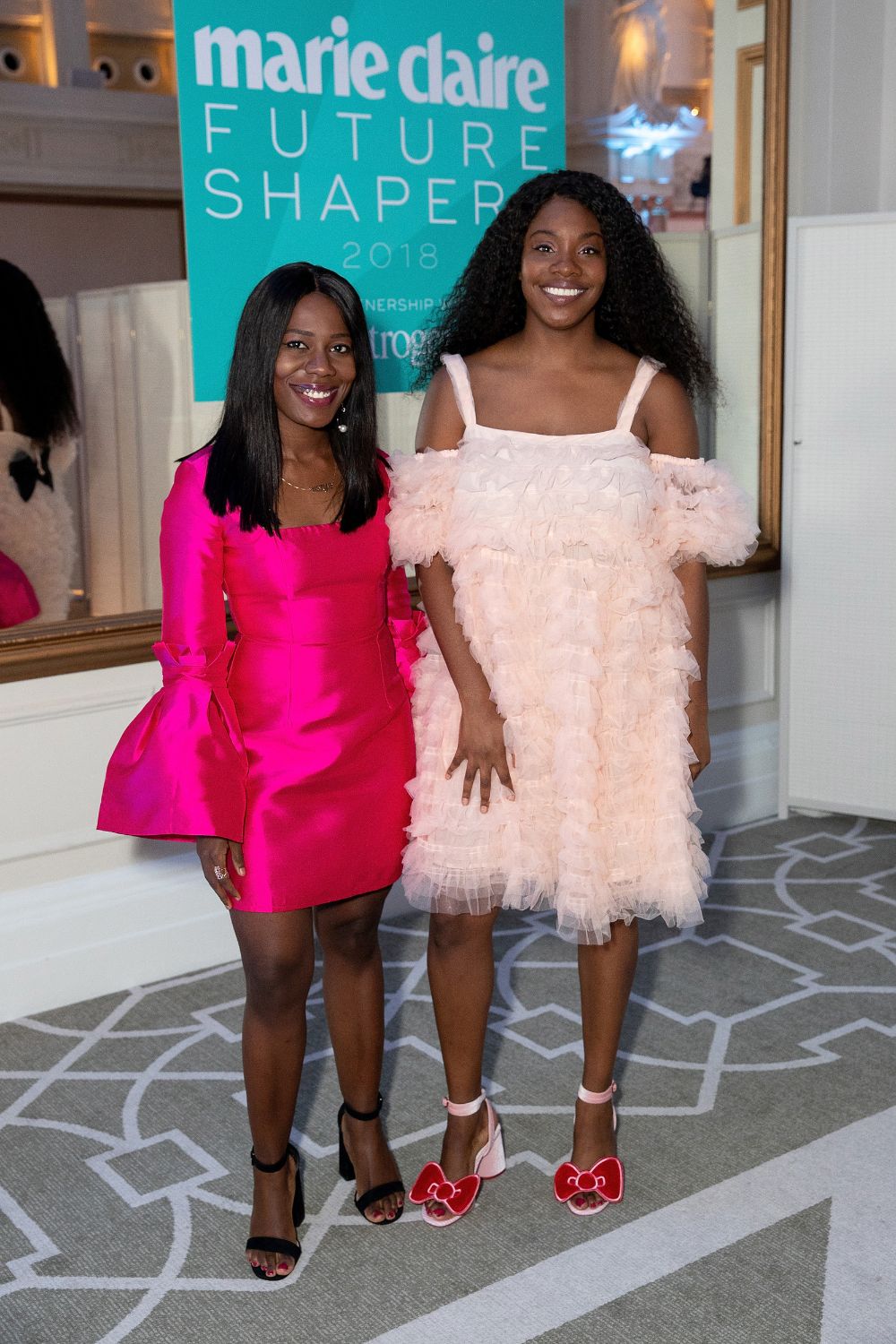
How did you find the transition from non-fiction to fiction?
Heinous - it was horrible. I'm a very confident person - I back myself. I believed in Slay in Your Lane from the outset - Elizabeth came to me with the idea and asked me to write it, but I was like you’ve just given me a goldmine - we have to write it together. I knew that it was excellent and I was really excited for it. I always say I had a That's So Raven flash forward moment where I could see the future and knew that it was going to be huge. I feel very confident in my non-fiction writing and I've always believed in it, but fiction was really new to me. I mean, the last book I’d written before The List was when I was in primary school and it was basically a plagiarised version of The Rugrats. It was called Baby World and I wrote seven of them - the last when I was like eight. And then there was a 20 something year gap, and then I wrote The List. So yeah, it was a real risk, and I felt very insecure.
How did you navigate that?
I went to a writing retreat. I really wanted to come at it like a novice and not arrogantly assume because I could write non-fiction that it was a transferable skill. I don't like feeling insecure - It's not really my bag, but I think it was useful. It was humbling and it really made me approach it as a craft and not take it for granted. It was so hard though because I was just riddled with insecurity constantly. Honestly, it was endless. It’s just so out of character for me. And it was also really disorienting because I went from that to an 11-way auction. So yeah, it has been surreal - it was fun, but parts of it were horrific. So much so that when they offered a two book deal, I told my agent I didn't want it. I was very happy with just a one book deal - and even that was a stretch. In the end she convinced me to do the second one, and now that I'm writing it I'm very happy, but I did require convincing.
I hear from other authors that this wait before publication is the hardest part of the process...
It's horrendous. It's so horrific - especially because before I'd co-written so much stuff with Elizabeth. We did all this together, so it was exciting. And if either of us ever did have a wobble, the other one was like, "come on, we've got this". But this is literally just me and it feels really different. It’s exciting and I feel incredibly grateful, but it’s very intense. This wait is the worst, especially because there is a lot of hype around it. And I am the exact person that would see a hyped book and be like, I'm not reading this because it's hyped. So it's now knowing that I probably would avoid my own book because I don't like that kind of thing. I mean, people really wanting to buy a book doesn't mean it's good - that is just the reality of publishing. And I feel a bit like I'm in freefall just waiting to see how it's received. So yeah, it's been a very strange period.
And it's already being adapted for Hollywood. Can you tell me a bit about that and what role you're playing in its creation?
It's being adapted by A24, BBC and HBO Max. I had multiple meetings with very different production companies and channels. And I remember leaving all of them and being typically indecisive - I'm a Libra. I genuinely didn't know who I could pick out of A24, BBC and HBO Max. So I remember getting out my phone and writing all their names in my notes app and leaving them there. I don't know what I was trying to get at but it was me trying to manifest something. I remember emailing my agent the next day and being like, do you think they could possibly all come together on a pitch? And when I got a no, I said, "OK well that has to change". Then I waited and they came back with the news that they would do it together. I couldn't believe my luck - I still can't. It was ridiculous. My title is executive producer and creator. And they've been very much like, "this is your story and we want you to be at the core of it". I really didn't want to because I've only had one experience in TV and it was quite bad, but they have just been so supportive. I'm really glad that they convinced me to be more involved.
A post shared by Yomi Adegoke (@yomi.adegoke)
A photo posted by on
Do you have a favourite book of all time or one that you go back to time and time again?
I so struggle with my favourite of all time, but if I was at gunpoint I'd probably say The Handmaid's Tale. It's one of the only books I've read more than once and one that I actually go back to quite a lot. It's that perfect blend of interesting and propulsive, with a story that has a lot of heart. It makes you feel and it makes you think, which I don't think is always the case. I remember reading it for the first time when I was 16 - it was literally what radicalised me into feminism. And it's scary that 15 years later, it's still prescient and accurate. No matter when you read it, it still feels fresh - it's like they were doing Black Mirror before Black Mirror. I actually had the honour of interviewing Margaret Atwood some time ago, and she was just so fabulous. I feel like if you're Margaret Atwood you don't have to be - she could have been terrible and I would not have minded because it's Margaret Atwood. But she was so lovely and clever. She was honestly fascinating and just sharp as a fucking tac.
What advice would you give to aspiring writers coming up in your footsteps?
Please write the thing. I know it's the most boring advice ever, but as I keep saying, there is such a parallel universe in which The List does not exist. The worst thing I had to lose was time. And while time is precious, it's time that I was spending watching Netflix. I just wrote The List with no expectation - it cost me no money to do it, I didn’t have to pay to submit it, I could just write it and something might come of it. But I knew that even if it didn’t, I had written a whole book. I know people roll their eyes at the saying, “done is better than perfect” and I get it, but I just wish people would internalise that more. Because the first few drafts of The List were heinous, and it's fine now because you have an editor whose job it is to make it good. I've met so many excellent writers, so many journalists and so many people that have writing aspirations. But I think we mythologise novels. We really see them as this sacred and magical thing. We believe that you have to be a particular type of person to write one, and it's just not true - I wish more of us knew that. Because once you realise that, you realise that the absolute worst case scenario is that you write the book, and it doesn't get published. And of all the variables in this lifetime, it just isn't really that deep. I just wish people would do it. So, do it.
The List by Yomi Adegoke is out now in hardback, 4th Estate: £12.99.

Jenny Proudfoot is an award-winning journalist, specialising in lifestyle, culture, entertainment, international development and politics. She has worked at Marie Claire UK for seven years, rising from intern to Features Editor and is now the most published Marie Claire writer of all time. She was made a 30 under 30 award-winner last year and named a rising star in journalism by the Professional Publishers Association.
-
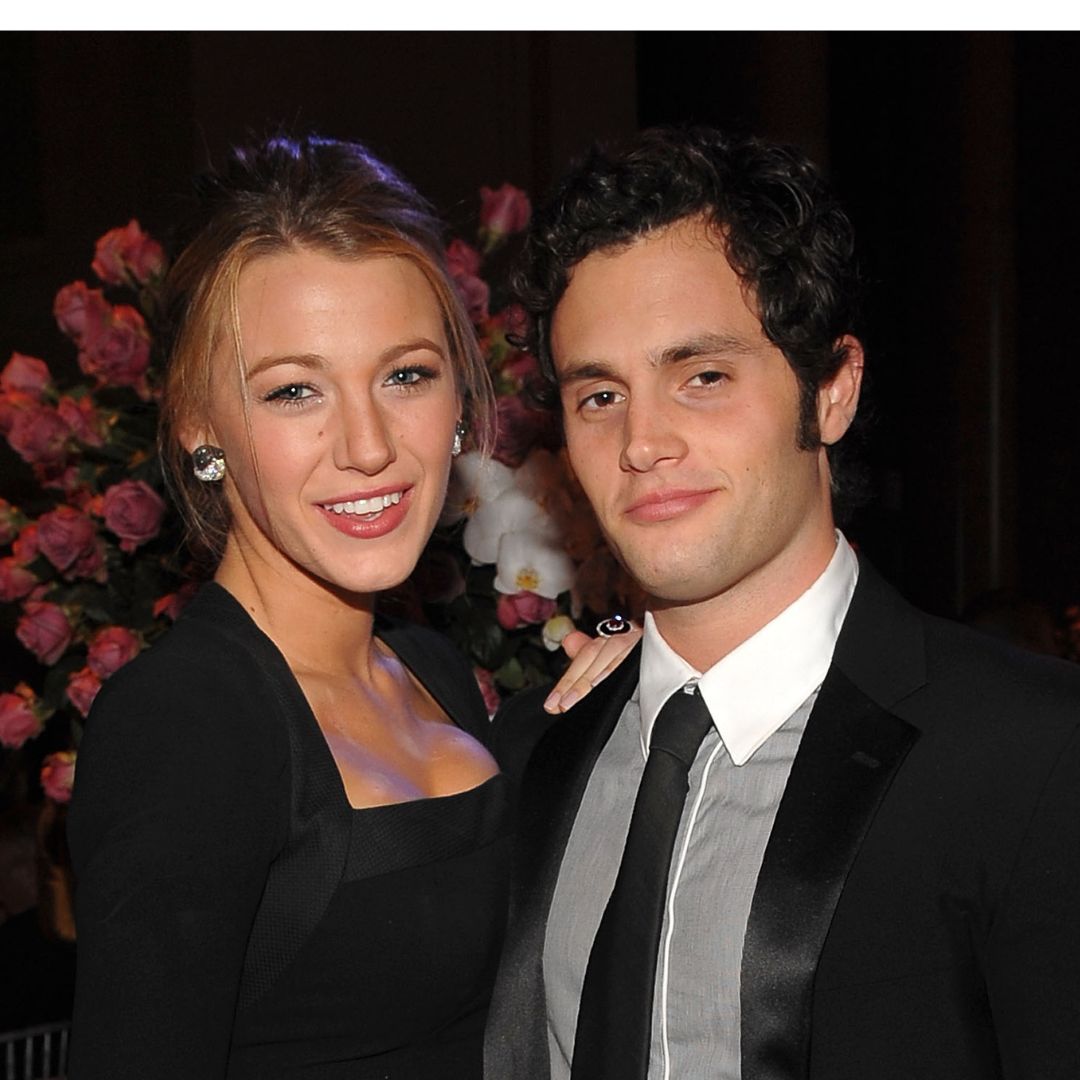 Penn Badgley credits ex girlfriend Blake Lively for "saving" him from the pitfalls of fame
Penn Badgley credits ex girlfriend Blake Lively for "saving" him from the pitfalls of fameBy Jenny Proudfoot
-
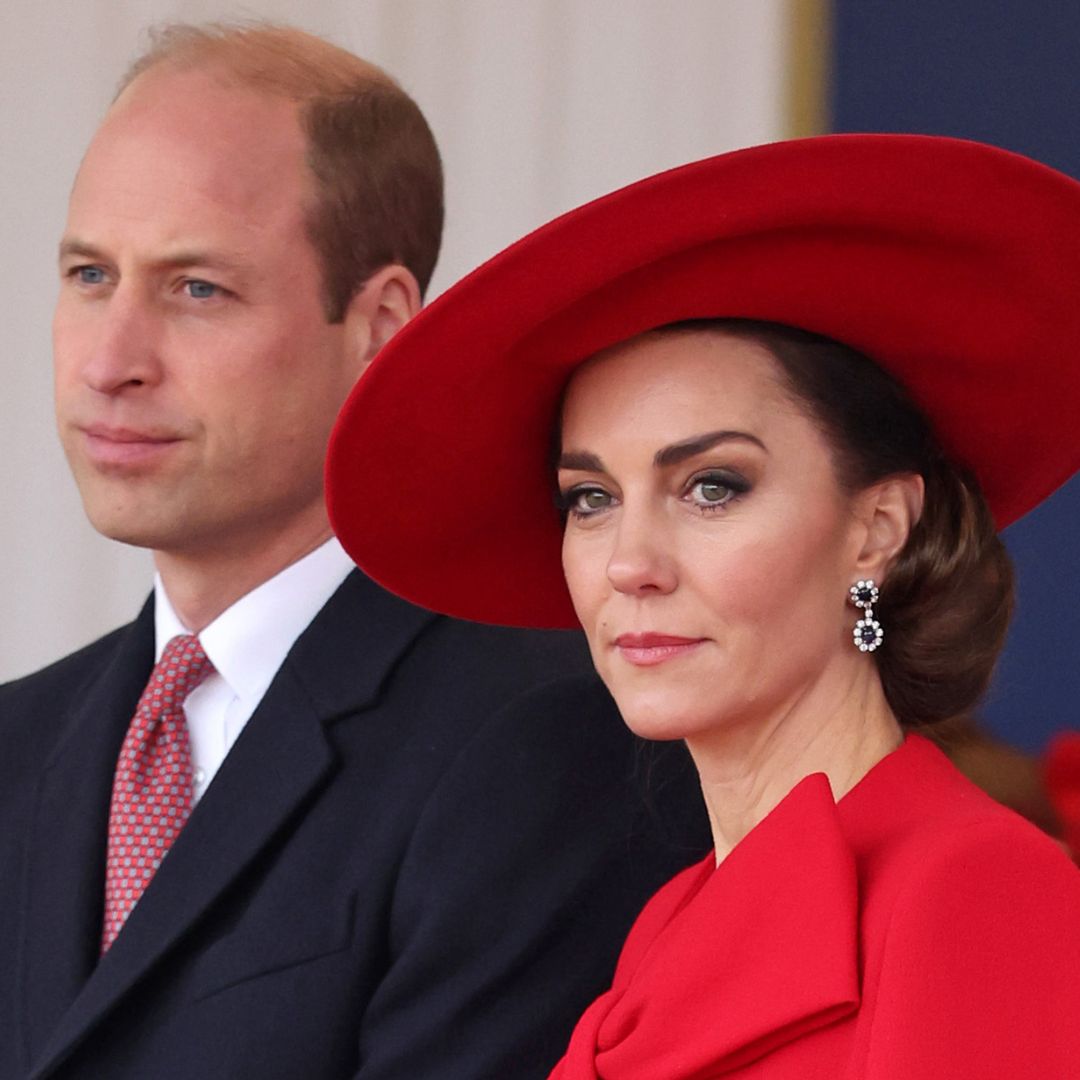 Prince William and Princess Kate's Easter absence has reportedly "raised eyebrows at the palace"
Prince William and Princess Kate's Easter absence has reportedly "raised eyebrows at the palace"By Jenny Proudfoot
-
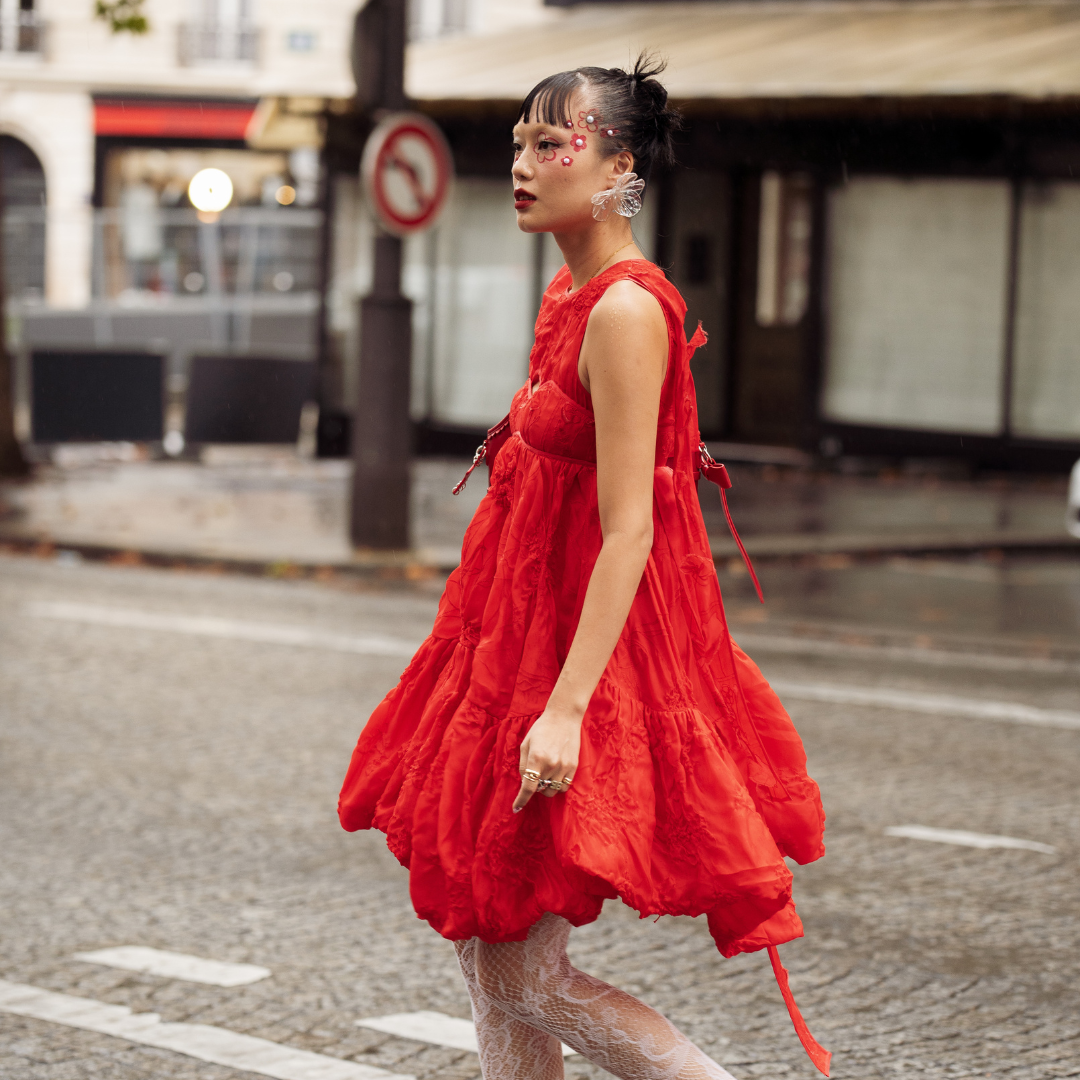 This divisive Nineties trend just got a high-fashion makeover
This divisive Nineties trend just got a high-fashion makeoverAll the cool girls are wearing babydoll dresses again
By Sofia Piza
